To prevent poisoning, it is important to remember all substances harmful to cats and prevent their presence in the house, in the cottage, keep the room clean and follow all the rules for the use of medicines.
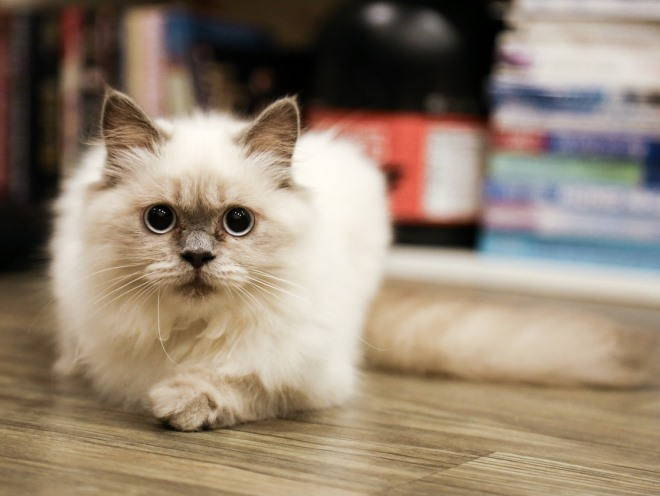
Poisoning in cats
It would seem that we feed the cat with the same things. And at home all the poisonous hidden from their weedy eyes. And suddenly this kind of trouble happens, out of the blue! We decided to get to know better what can cause poisoning in cats and cats, and how to deal with it, if it has already happened.
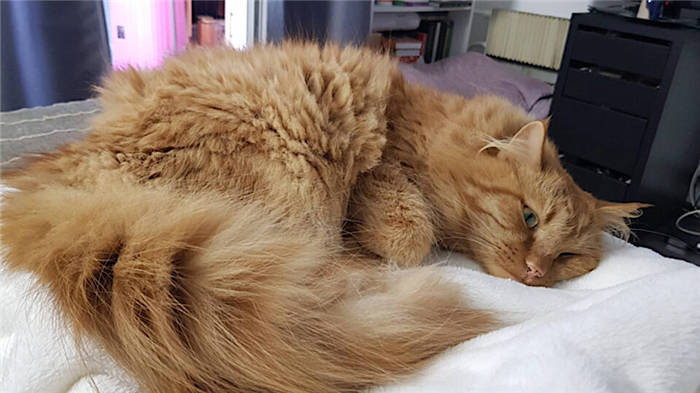
This article was suggested to me by a recent case. My Chupacabra loves grass, a special green grass they sell in pet stores. And then one day I bought him the wrong grass.
Although, it would seem, well, how can a pet store sell the wrong kind of grass!
In the evening Chupacabra enjoyed chewing on the grass, and at night I heard some strange noises. And in the morning I found some strange puddles on the floor-Chupacabra had vomited during the night.
But since we're all used to cats regurgitating their fur from time to time, especially if they're fluffy, I didn't pay any attention to it. And went to work. And in the evening I found a few more caustic puddles on the floor and completely exhausted Chupacabra, lying on the bed with a cloth. The cat was clearly poisoned. But what could he be poisoned with?
Naturally, the newly acquired grass flew into the trash, and Chupacabra had to be treated for several days. No one would have expected this from a simple cat weed.
Symptoms of poisoning in cats
If a person himself can in most cases identify his poisoning by 2 – 3 symptoms, then, as for the cat – not everything is so simple. Much depends on what the animal was poisoned with. If it is spoiled food, the symptoms will be the same, but if the rat poison or household chemicals – then there is a completely different clinical picture
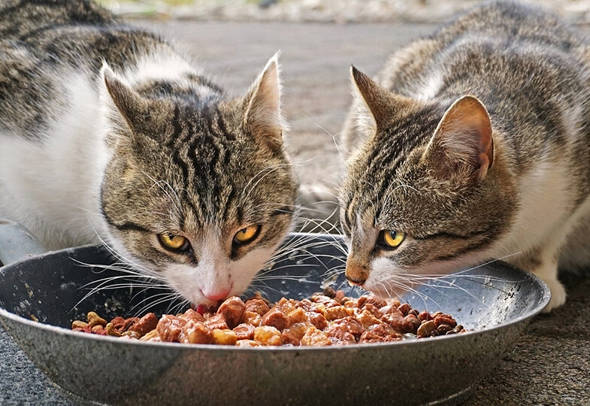
Poisoning of cats in the apartment
It is important to keep all medications and chemicals in places out of reach of animals. Poisoning can be either mild – vomiting, diarrhea – or fatal, due to, for example, acute kidney failure.
The most common reason for going to clinics is food poisoning, when fed either tainted ready-made feed or natural food unsuitable for animals.
Compared to poisoning with strong poisons, unsuitable food is less likely to cause acute life-threatening conditions, but it does cause chronic illness. The liver, pancreas, and stomach react most often. With any adverse signs, even mild ones, it is important to show your pet to a doctor and get the necessary tests, even if symptoms such as vomiting, diarrhea could be prevented on their own. A course of additional medications may be necessary.
Drug poisoning
Paracetamol (4) is contraindicated in cats – it can cause muzzle edema, cyanosis of mucous membranes (blueness), shortness of breath, kidney failure, gastritis and stomach ulcers.
Animals are also contraindicated analgesics (non-steroidal anti-inflammatory drugs) such as Ibuprofen and Indomethacin – they are very toxic and can also cause poisoning Aspirin, Pyroxicam, Caroprofen, Naproxen, Phenylbutazone.
Their use with glucocorticoids is especially contraindicated. They may cause gastric ulceration, stools and vomiting with blood ("coffee grounds"), abdominal pain, and acute renal failure. When poisoned with these drugs, it is necessary to induce vomiting, with Aspirin poisoning, the stomach can and should be flushed, even if it has been 3 hours since the poisoning, because aspirin can form conglomerates.
How do toxins enter the body?

1. alimentary. It means eating a toxin – bad food, household chemicals, a poisonous plant, rat poison, and others.
2. aerogenic. Concludes in ingestion of vapors of poisonous gases or substances.
3. through the skin or mucous membranes. As a rule, this method of poisoning is associated with improper treatment of the animal from parasites. For example, if the toxin got on the mucous membranes. When applying the medication to the cat, clearly follow the instructions for use. Dispose of the drug package immediately.
4. Through injection. Unfortunately, some cat owners like to self-medicate by "prescribing" their pet with the drug without consulting a veterinarian about the dosage. If you do not have specialized education, it is better to entrust all manipulations on the treatment of the cat to a doctor.
Symptoms of poisoning in cats
The first signs of poisoning can be noticed in a cat as early as 2-6 hours after ingestion of the toxin into the body.

- nausea, vomiting;
- diarrhea;
- increased salivation;
- lethargy, apathy;
- decreased appetite or complete refusal of food;
- thirst;
- foul odor from the mouth;
- decreased or increased temperature;
- pallor or blueness of mucous membranes;
- attempts to hide in a dark place;
- severe itching (if bitten by an insect);
- lack of pupil response to light.
Non-standard poisonings in cats
- Wrong dosage of the drug in the treatment of any disease or self-treatment with drugs that are contraindicated for the animal;
- Poisons, most commonly rat poison. Both poison baits and rodents that have ingested the bait are dangerous to cats;
- poisonous plants;
- Chemical substances, especially those that give off vapors. These are paint products, household chemicals, pesticides used to treat plants. Poisoning occurs through the respiratory organs or mucous membranes;
- Overdose of drugs against fleas, ticks or helminthes;
- Bites from insects or snakes.
Sometimes the effects of poisoning chemicals on the body occur gradually, in which case the intoxication is difficult to notice immediately. In a cat poisoned by chemicals, the characteristic manifestations may occur when the consequences become irreversible, and in this situation it is not always possible to save the animal.
If a cat is poisoned by chemicals, it is necessary, without waiting for the symptoms to appear, contact the veterinary clinic as soon as possible. In some cases you may need to give the cat an antidote, and what exactly – can only be installed in the clinic.
There have been cases when poisoning in a cat is due to alcohol or chocolate, when people give them for fun. Prolonged stay in a room where a lot of people smoke is also dangerous for animals.
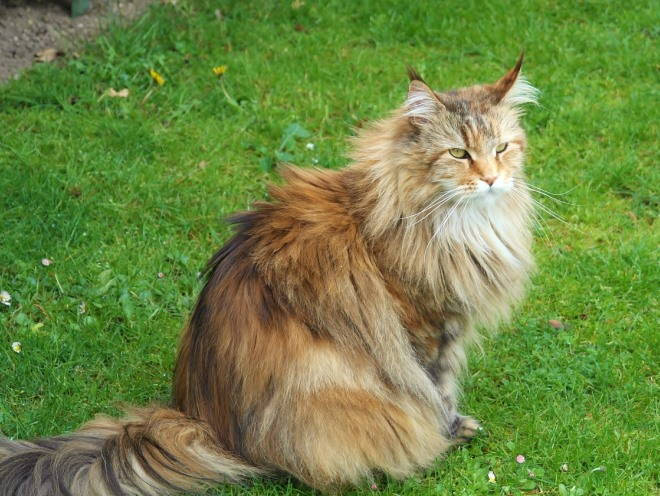
Signs of poisoning
Symptoms of poisoning in cats are manifold, but only a few of them may manifest. Common signs of poisoning in cats:
- Nausea, which is expressed by the fact that the pet licks his nose very often while smacking;
- salivation;
- Vomiting. It may be with bile or blood, or it may be without bile or blood;
- diarrhea;
- lack of appetite;
- Rapid breathing, often shallow;
- abdominal pain, which may be accompanied by a meow, or may be noticeable only by pressing on the abdomen;
- increase in temperature;
- dilated pupils. Sometimes a third eyelid becomes visible in poisoned animals.
In addition, the behavior, the general condition of the pet changes. There may be lethargy or, on the contrary, overexcitation. There may be a lack of coordination of movement. In severe cases, tremors, seizures, paralysis may be observed.
If the symptoms are found, and the cat may have been poisoned, you must be sure before you do anything at home. Such symptoms may indicate not only poisoning, but also other serious illnesses. It is important to find out if the cat is poisoned or not, as soon as possible. It is necessary to analyze what may have caused it. If the cause is not found, it is better to urgently contact a veterinary clinic for diagnosis and treatment.
Treatment of poisoning in cats is different from the treatment of other diseases with similar symptoms. If you make the wrong conclusion, you can do harm and waste time. Special attention should be paid to kittens, especially when the kitten is poisoned with a large dose of poison.
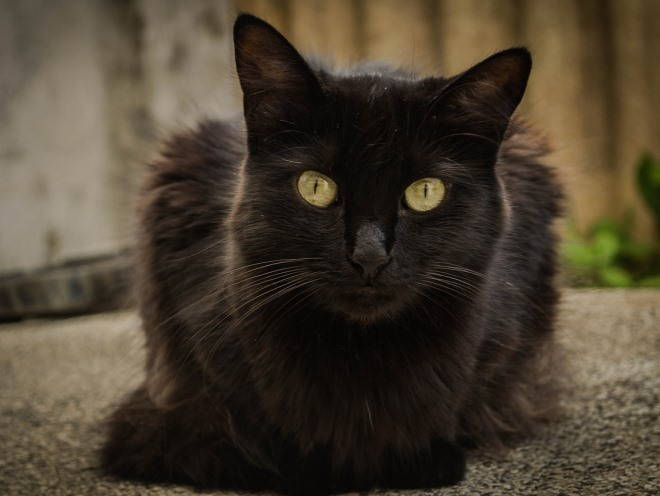
Care and feeding rules after poisoning
Poison suffered by a cat requires not only treatment, but also special care in the recovery period.
Depending on what organs and body tissues were damaged, the veterinarian will give recommendations on the cat's maintenance and feeding.
A special veterinary diet may be prescribed during the treatment period. But even afterwards, a special diet may be needed to provide for the body's needs during the recovery period. The possibility and timing of switching to a normal diet should be agreed with the veterinarian who treated you.
Recommendations from the specialist should be shared with all family members. Every person caring for and feeding the cat should know that their precise fulfillment is important for the recovery of the cat's health.
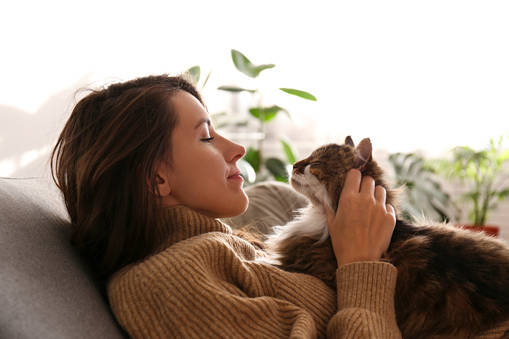
Medications, probiotics, vitamin and mineral complexes and other remedies prescribed to the cat should be given according to the recommendations of the attending veterinarian, observing the dosages and duration of treatment.
And during the recovery period and afterwards you should make sure that the cat gets enough clean drinking water. The average daily norm of water for a cat is 40-50 ml per kilogram of body weight.
Prevention of poisoning in cats
- Keep household chemicals and paint products tightly covered. Keep them in a designated area out of the reach of pets and children. Limit the pet's access to the room during cleaning and repairs with them.
- Make sure the cat gets a nutritious, high quality food. For animals prone to digestive problems, use special diets, such as Purina One food for cats with sensitive digestion. Do not give your cat food with scraps from your table, steal food prepared for human consumption and leave it in the litter box.
- Ensure that the cat has access to fresh drinking water at all times. Keep food and water bowls clean and change the cat's drinking water at least once a day.
- Do not let the cat eat rodents or birds caught while hunting or picking up food outside the house.
- Do not use products from a human medicine cabinet to treat the cat. Use veterinary medicines only as prescribed by your doctor, observing the recommended dosage, duration of treatment and method of administration.
- Do not let the cat out for a walk on the garden plot after chemical treatments against pests and weeds. Treating clothes with mosquito and fly repellents you must make sure that the chemical does not get on your cat's fur, and do not let it lie on the treated items.
Every cat is a living creature, inquisitive and active. It's impossible to keep her from having adventures. But if you follow these simple rules, your home and garden will be safer for the cat.






